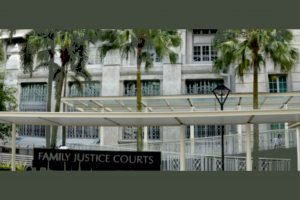Singapore High Court (Family Division): A Three-Judge Bench comprising of Sundaresh Menon, CJ., Judith Prakash, JA., and Debbie Ong, J., allowed an adoption order in the favor of a same-sex couple.
The facts of the case are that the appellant was a gay man. He wanted to adopt his biological son who was conceived through in-vitro fertilization and was born in the US by a surrogate mother. She was paid by the appellant for her services. She then abdicated her parental rights over the child, whom the appellant and his partner then brought to Singapore. In these circumstances, the principal question was whether an adoption order would serve the best interests of the child considering the parenting arrangement and the ethics of the means by which his birth was procured. The court focused on the difficult interplay between law and public policy in the determination of this question. Here the court answered the question that whether or not the appellant should be allowed to adopt his son. It also discussed the appropriate methodology to be applied in determining and weighing the material considerations of public policy that may bear on this particular issue.
The court gave an adoption order in the favor of the appellants. The Court, while doing this, held that in determining this question the main concern should be the welfare of the child. Attention must be given not only to his psychological and emotional development but also to the environment within which his sense of identity, purpose and morality will be cultivated. The Court held that the welfare of a child refers to his well-being in every aspect, that is, his well-being in the most exhaustive sense of that word. It refers to his physical, intellectual, psychological, emotional, moral and religious well-being. It refers to his well-being both in the short term and in the long term. The inquiry under the Adoption of Children Act requires an assessment of the impact of making an adoption order on the child’s welfare, and if the court is not satisfied that the impact of such an order would be for the child’s welfare, then the Court cannot make the order. The welfare of the child ought to define the scope of the inquiry.
The Court also held that the adoption of a child clearly concerns his “upbringing”, and therefore, an adoption proceeding must be a proceeding concerning the upbringing of a child within the meaning of Section 3 of the Act. Section 3 was said to apply “whatever the proceedings, as long as within such proceedings an issue of the custody or upbringing of a child arises”, such that the consideration of the child’s welfare is the “ubiquitous” standard by which all such proceedings are to be guided.
The Court next addressed the appellant’s submission that an adoption order should nevertheless not be made because it would be in violation of public policy. In the Court’s view, there was a legal basis, in Section 3(1) of the Act, for the Court to take public policy considerations into account in arriving at its decision in this case. In evaluating this submission, the first question that was addressed was whether there was any legal basis for the Court to take public policy considerations into account in arriving at its decision in this case. The Court held that there was both a statutory basis and a common law basis for doing so, although, having regard to the specific public policies that the appellant relies on, it is the statutory basis that was applied here.
The Court attributed significant weight to the concern not to violate the public policy against the formation of same-sex family units on account of its rational connection to this dispute and the degree to which this policy would be violated should an adoption order be made.
The Court said that neither of these reasons were sufficiently powerful to enable it to ignore the statutory imperative to promote the welfare of the child, and to regard his welfare as first and paramount. The welfare of the child should always be kept before public policy consideration. Thus the Court concluded that an adoption order ought to be made in this case. [UKM v Attorney-General, [2018] SGHCF 18, decided on 17-12- 2018]

